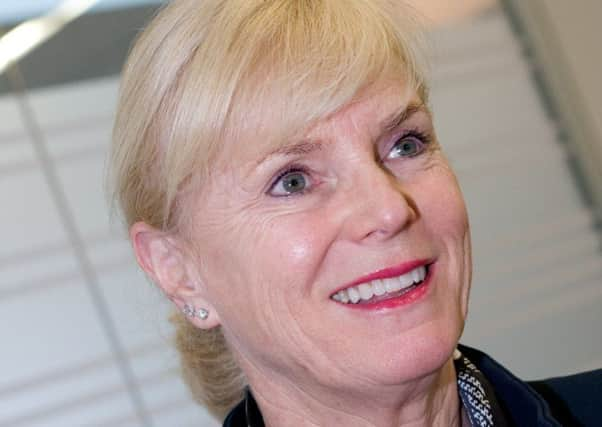Alliance and Elliott bury hatchet on eve of vote


The Dundee firm had been locked in a war of words with Elliott Advisors since the middle of last month over the hedge fund’s attempt to install three new non-executive directors on the board.
However, in a surprise move yesterday, Alliance announced a change of heart that will see it appoint two of Elliott’s nominees – former SG Warburg executive Anthony Brooke and Rory Macnamara, previously a director at Morgan Grenfell – once they have received the all-clear from regulators.
Advertisement
Hide AdAdvertisement
Hide AdThe two companies have also agreed “certain mutual non-disparagement undertakings”, as part of which Elliott will not call a general meeting or seek to publicly “agitate against the company” until after Alliance’s annual meeting next year at the earliest.
Elliott had also been seeking to have former Legal & General Investment Management chief executive Peter Chambers voted onto the board of the Dundee wealth manager, but the activist investor said that he had “gracefully” agreed to stand aside as a candidate.
The hedge fund, which controls about 12 per cent of the Tayside institution, added: “We understand that Alliance Trust will wish to set the criteria for its own search for a further non-executive director, and will accept the company’s open invitation to major shareholders to be consulted in that process.”
Alliance revealed earlier this month it has accelerated its process of finding a “new, truly independent” director, having appointed headhunter Russell Reynolds “to undertake a broad, transparent and rigorous search”.
The trust had vigorously opposed Elliott’s efforts to shake up its board, but shareholder advisory groups ISS and Pirc had recommended that investors vote in favour of the boardroom shake-up when they gather for Alliance’s annual meeting at Dundee’s Gardyne Theatre today.
Karin Forseke, chairwoman of the 127-year-old firm, said: “On behalf of the whole board, I would like to express my gratitude to our shareholders for engaging with us on this important issue.
“Having considered this feedback we have worked with Elliott to find a compromise which we believe is in the best interests of all our shareholders. I would also like to welcome Anthony and Rory to the board, where their significant experience will be a considerable asset.”
Charles Murphy, investment funds analyst at Panmure Gordon, said the move was “highly positive” for Alliance, which now has “a year’s grace within which to review its strategy in private”.
Advertisement
Hide AdAdvertisement
Hide AdBut Hargreaves Lansdown senior analyst Laith Khalaf said he believed that Elliott would be “significantly happier” with the truce than the board of Alliance, which has faced criticism over its performance and the level of pay awarded to chief executive Katherine Garrett-Cox.
“The agreement at least draws the matter to a close, and prevents any further public bickering for at least a year,” Khalaf added.
“However, investors may justifiably feel a bit miffed. Some of them will have taken time to examine the issues before casting their vote, only to have the decision taken out of their hands at the last minute. They also have to contend with the uncomfortable fact that Alliance Trust has told them the two people it now plans to appoint to its board are not independent.”
Alliance claimed last month that Elliott’s proposed directors “cannot be considered to be independent”, prompting a scathing response from the hedge fund, which said the trust had resorted to “personal attacks in a manner unbecoming of directors of a public company”.
Khalaf added: “The key question for investors remains whether the recent changes made by the trust will lead to improved performance. On that score, the jury is still out.”